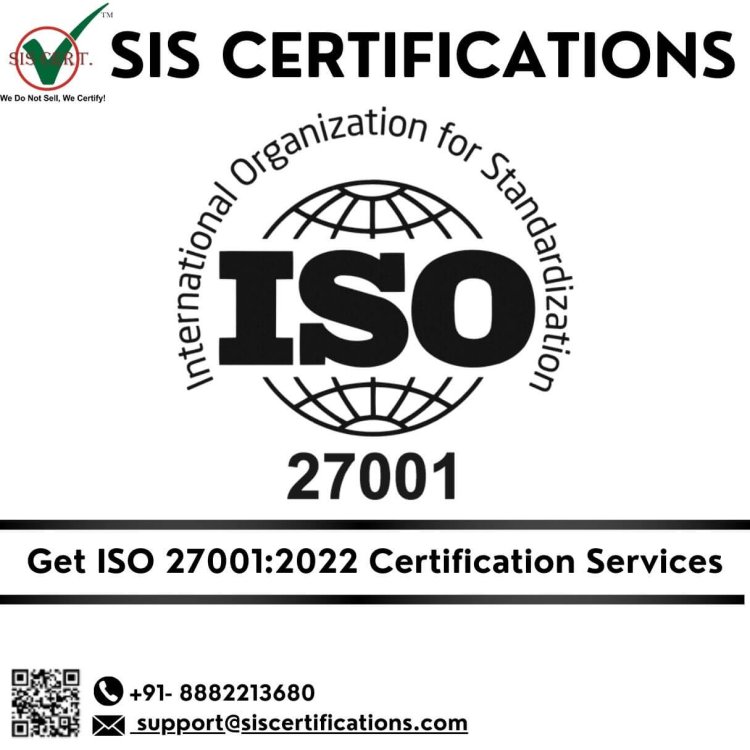What is ISO 27001? A detailed and straightforward guide
ISO 27001 is an international standard for Information Security Management Systems (ISMS). It provides a systematic approach to managing sensitive company information, ensuring its confidentiality, integrity, and availability.
Share this Post to earn Money ( Upto ₹100 per 1000 Views )


ISO 27001 is an international standard for Information Security Management Systems (ISMS). It provides a systematic approach to managing sensitive company information, ensuring its confidentiality, integrity, and availability. Here's a detailed guide to help you understand it better:
What is ISO 27001?
ISO 27001 is a globally recognized framework that outlines the requirements for establishing, implementing, maintaining, and continually improving an Information Security Management System (ISMS). The ISMS is a systematic approach to managing sensitive company information so that it remains secure. ISO 27001 provides a risk-based approach to information security, allowing organizations to identify and mitigate potential risks to their information assets.
Key Components of ISO 27001:
Scope Definition: Organizations must define the scope of their ISMS, identifying the boundaries and applicability of the standard within their operations.
Risk Assessment and Management: This involves identifying and assessing information security risks, determining the level of risk acceptance, and implementing controls to mitigate or manage those risks.
Security Controls Implementation: ISO 27001 provides a set of security controls organized into 14 categories, including access control, cryptography, physical security, and incident management.
Documentation Requirements: The standard mandates the documentation of various aspects of the ISMS, including policies, procedures, and records, to ensure clarity and consistency in security management.
Management Commitment: Senior management must demonstrate leadership and commitment to information security by establishing policies, providing resources, and promoting a culture of security awareness.
Internal Audits: Regular internal audits are required to assess the effectiveness of the ISMS and identify areas for improvement.
Management Review: Senior management must review the ISMS regularly to ensure its continued suitability, adequacy, and effectiveness.
Benefits of ISO 27001:
Enhanced Security Posture: ISO 27001 helps organizations improve their overall security posture by implementing a systematic approach to managing information security risks.
Compliance: Compliance with ISO 27001 demonstrates an organization's commitment to information security and may be required or preferred by regulatory bodies, customers, and partners.
Risk Management: ISO 27001 enables organizations to identify, assess, and mitigate information security risks effectively, reducing the likelihood and impact of security incidents.
Competitive Advantage: Certification to ISO 27001 can provide a competitive advantage by instilling confidence in customers, partners, and stakeholders regarding the organization's ability to protect sensitive information.
Continuous Improvement: ISO 27001 promotes a culture of continuous improvement by requiring regular monitoring, evaluation, and enhancement of the ISMS.
Certification Process:
To achieve ISO 27001 certification with cost and process, organizations typically undergo the following steps:
Gap Analysis: Assess current information security practices against ISO 27001 requirements to identify gaps.
Implementation: Develop and implement necessary policies, procedures, and controls to address identified gaps.
Internal Audit: Conduct internal audits to evaluate the effectiveness of the implemented ISMS.
Certification Audit: Engage a certification body to conduct a formal audit of the ISMS against ISO 27001 requirements.
Certification: Upon successful completion of the certification audit, the organization is awarded ISO 27001 certification, typically valid for three years, subject to annual surveillance audits.
Conclusion:
ISO 27001 is a comprehensive standard for information security management that helps organizations protect their sensitive information assets. By implementing an ISMS based on ISO 27001, organizations can enhance their security posture, achieve regulatory compliance, and gain a competitive advantage in the marketplace.







